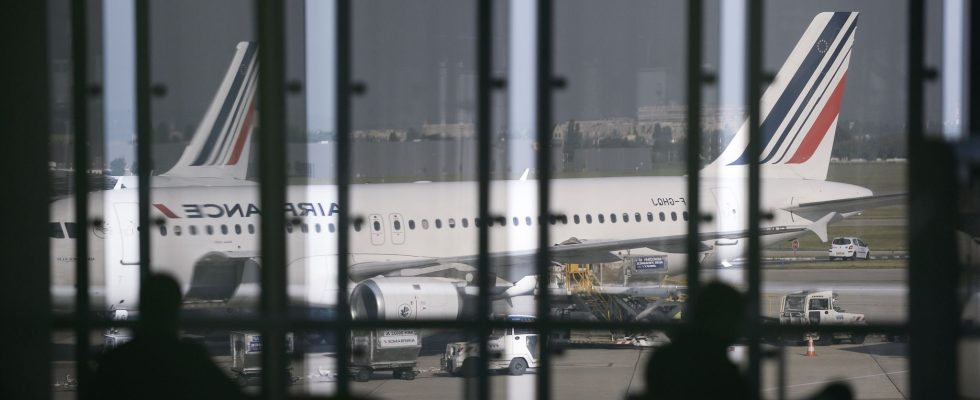And once more. A new strike by air traffic controllers will cause flight cancellations this Monday. The airports of Orly, Toulouse, Bordeaux and Marseille are affected. In total, this would be the 53rd notice from air traffic controllers in 2023. The reason for these new disruptions? On Wednesday, November 15, Parliament adopted a bill aimed at organizing air navigation services in the event of social unrest, through a final vote in the National Assembly. The Directorate General of Civil Aviation (DGAC) therefore asked airlines the next day to give up part of their flight schedule this Monday.
On the government side, we applaud with both hands. This “protective and balanced” text makes it possible to put an end to “an asymmetrical system” at the origin of a “disorganization of the public service”, argued the Minister of Transport Clément Beaune. The senatorial bill, adopted in June by the upper house and brought to the Assembly by Renaissance deputy Damien Adam, was adopted with 85 votes against 30. The left opposed it, considering the text as “a threat for the right to strike”, according to Green MP Lisa Belluco.
Senator Vincent Capo-Canellas (Centrist Union) is at the initiative of this bill which makes it obligatory, for any airline agent carrying out functions “the absence of which is likely to directly affect the carrying out of flights”, to declare individually his participation in a strike movement two days previously. The right to strike of air traffic controllers will not be called into question, but the text which was approved in the National Assembly will oblige air traffic controllers to declare themselves strikers 48 hours in advance. The objective: to avoid last minute cancellations.
Allow “minimum service in all circumstances”
Social movements linked to the pension reform in the first half of 2023 led the government to activate the accelerated procedure for examining the text, allowing a single reading in each chamber, and rapid final adoption. Specifically, the single article of the text requires strikers to give notice of their participation in a social movement “no later than noon the day before each strike day”.
Currently, air traffic control unions must file any strike notice five days before a strike, but strikers do not have to declare their individual participation, unlike other employees in the sector. For their part, the airlines have raised their voice, these strikes disrupting all European traffic. The CEO of Ryanair, Michael O’Leary, saw these recurring disruptions as an obstacle to “freedom of travel”.
“Unreasonable use”
Even the national union of air traffic controllers (SNCTA), the majority union in the sector, expressed itself – timidly – in favor of the text. He warned of an “instrumentalization of the right to strike and its unreasonable use” in certain circumstances. “As a result of this dialogue initiated for several months and the guarantees provided, the SNCTA considers the use of a strike notice inappropriate and does not call for mobilization on Monday, November 20,” he indicated in a communicated published Tuesday. The same union also pledged to the government to avoid strikes during the 2024 Olympic Games.
The text aims to allow “a minimum adapted service”, that is to say the obligation imposed on public service employees to ensure a minimum service in all circumstances and the implementation of “measures proportionate” to real needs of the sector in the event of a strike, argued rapporteur Damien Adam. For him, the adoption of this proposal is “a major step forward in reconciling the right to strike of air traffic controllers and the predictability of air traffic. Since 2005, 249 strike days have taken place, compared to 34 in Italy, 44 in Greece , and less than ten in the other Member States.
